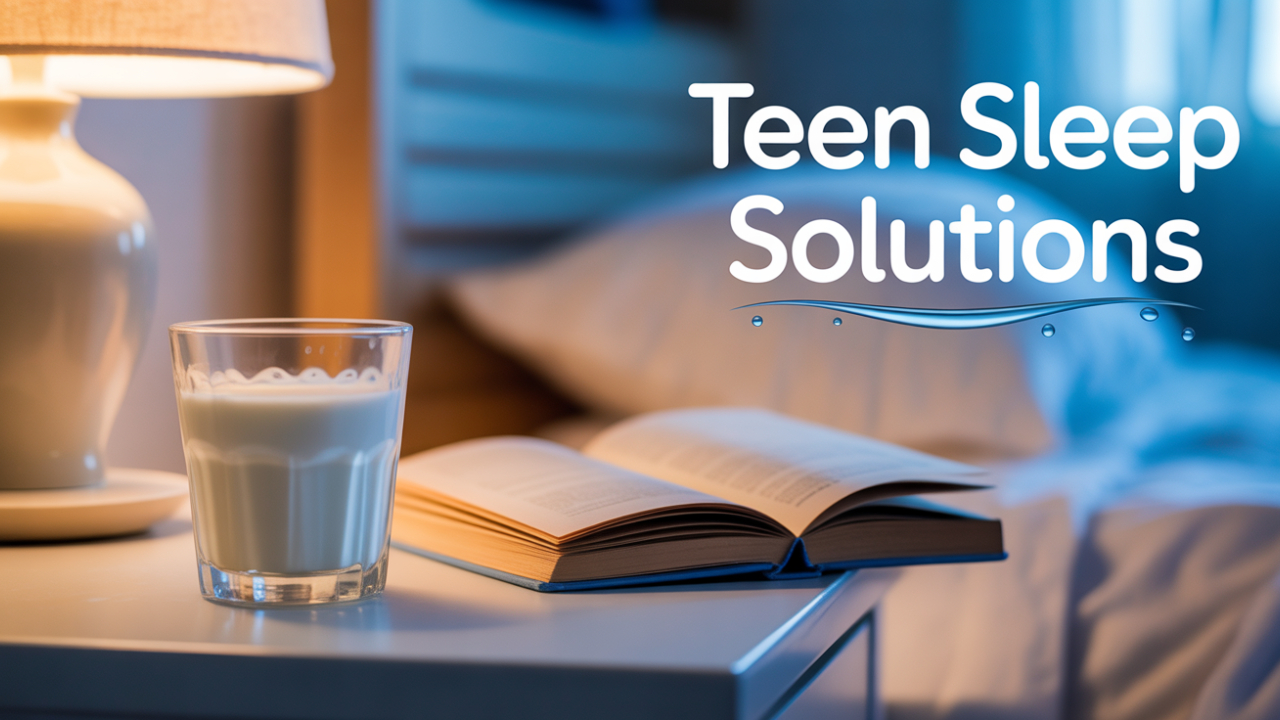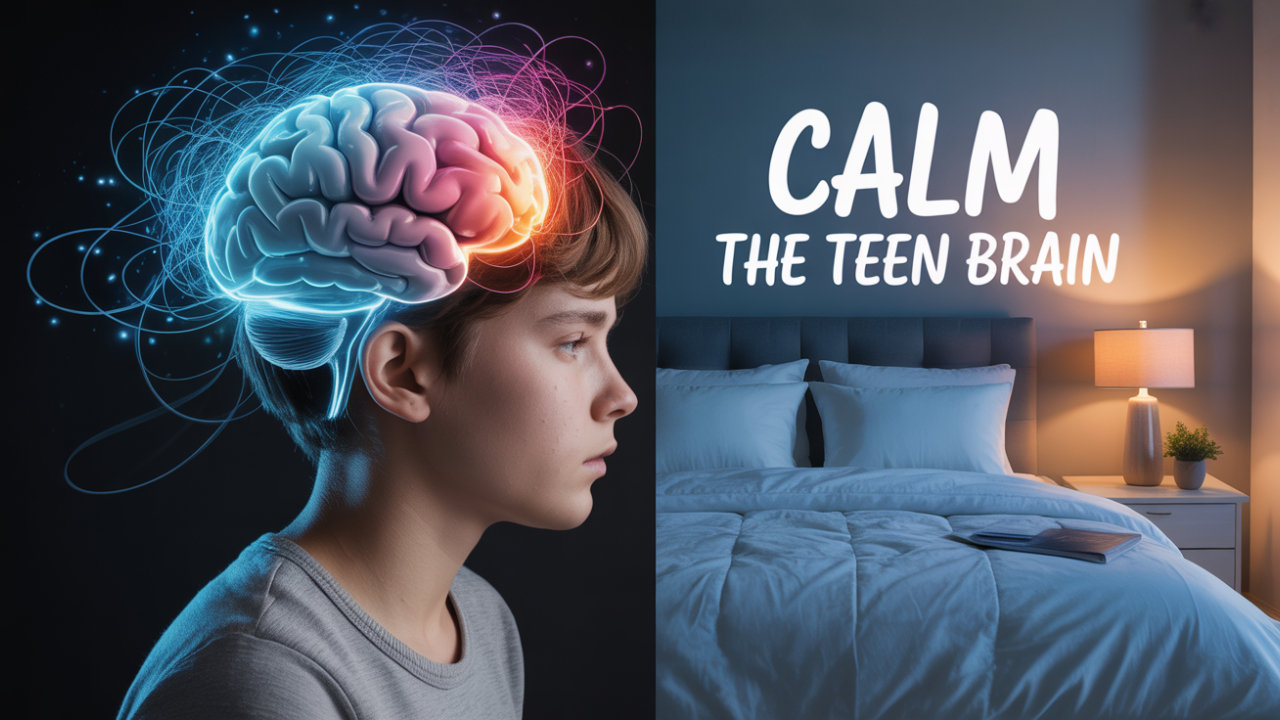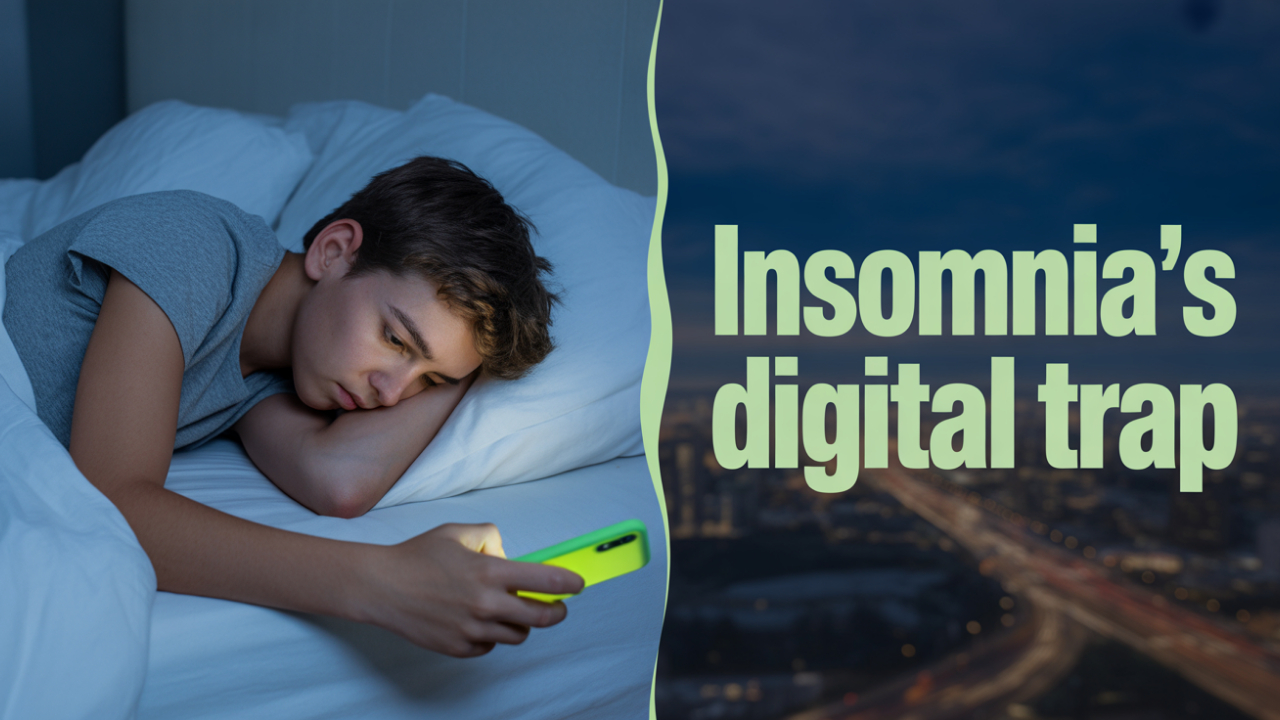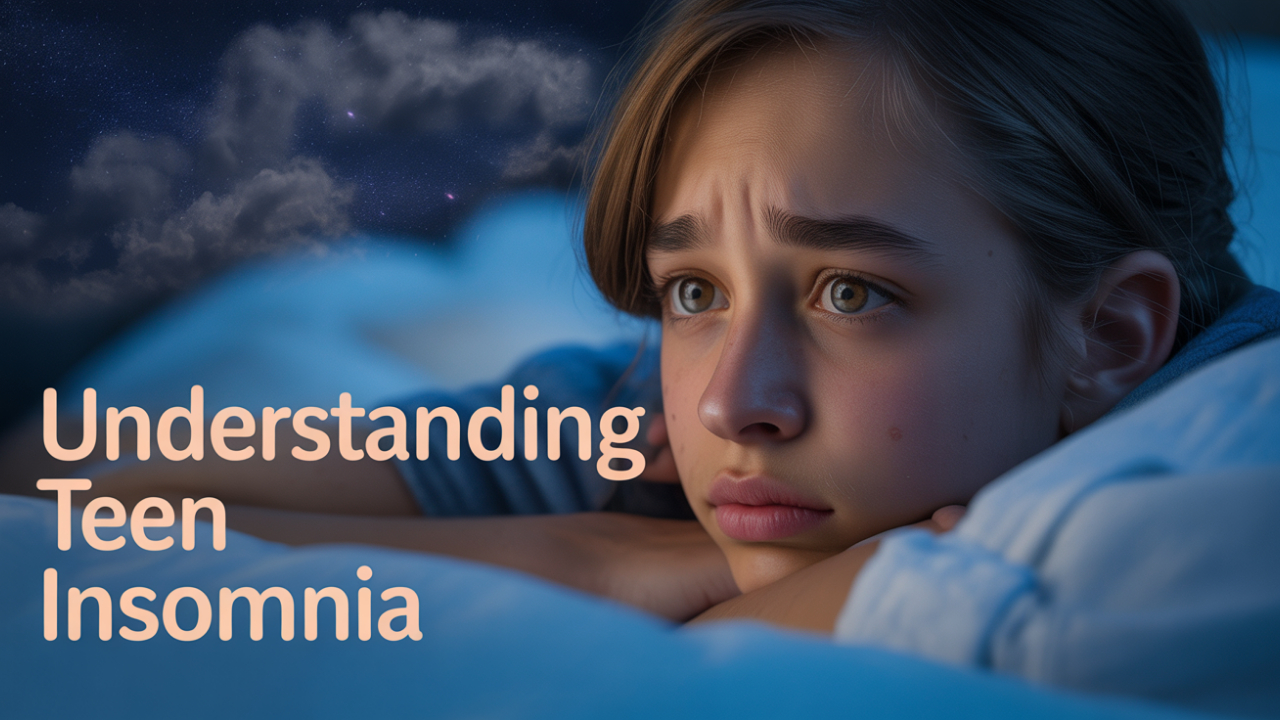Understanding Insomnia in Teens
Sleep is essential for the health and development of adolescents. During puberty, the body and brain go through major changes, and proper sleep supports learning, emotion regulation, and physical growth. However, many teenagers experience insomnia, a condition where falling asleep, staying asleep, or getting quality rest becomes difficult. At Adolescent Mental Health in Orange County, California, we help teens and families understand the causes of insomnia in teens and find solutions that improve mental health and overall well-being.
This article provides information about what insomnia is, its causes, and effective solutions to help teens get better rest.
What Is Insomnia in Teens?
Insomnia in teens refers to persistent sleep problems in teenagers, such as trouble falling asleep, waking up often during the night, or waking too early and being unable to fall back asleep. Teens may also experience hypersomnia, which is excessive sleepiness during the day as a result of poor nighttime sleep.
Teenagers need 8–10 hours of sleep each night, but sleep deprivation is common. Unlike an occasional late night or sleep debt from a busy week, insomnia and teens involve a pattern of sleep problems teenager that can affect academic achievement, mood, and physical health.

Causes of Insomnia in Teens
Many factors can lead to insomnia in teens. Identifying the cause is the first step in improving sleep hygiene and health.
Circadian Rhythm Changes
During puberty, the body’s natural circadian rhythm shifts later. This means teens feel alert later at night but still need to wake up early for school, resulting in chronic sleep debt.
Mental Health and Stress
Anxiety, stress, and mood disorders are strongly linked to insomnia. Teens facing peer pressure, family conflict, or heavy homework loads often have racing thoughts at bedtime, making it hard to relax. Symptoms can include irritability, headache, and poor attention in class.
Technology and Screen Time
Late-night use of mobile phones, computers, or tablets exposes teens to blue light, which suppresses melatonin, a hormone that signals the body it’s time to sleep. Excessive screen time delays the sleep cycle and disrupts habit formation.
Substance Use and Diet
Caffeine, sugary drinks, or other stimulants can keep teens awake. Substance abuse of nicotine, alcohol, or drugs also harms sleep. Poor diet or heavy meals at night contribute to discomfort and insomnia.
Medical Conditions
Health issues like asthma, gastroesophageal reflux disease, restless legs syndrome, pain, and obesity can make it hard to sleep comfortably. Other problems such as sleepwalking, nightmare, snoring, or disease affecting the immune system may also interfere.

Effects of Insomnia on Teen Health
Lack of sleep impacts nearly every aspect of a teen’s life:
Mental health: Increases risk of anxiety, mood disorder, and poor psychology outcomes.
Physical health: Weakens immune system, raises blood pressure, and may increase risk of obesity or heart disease.
Behavior: Teens may show poor emotion control, irritability, or risky behavior.
Academics: Fatigue and reduced attention hurt academic achievement and education progress.
Solutions for Insomnia in Teens
Teens can improve sleep with the right support and strategies. At Adolescent Mental Health, we help each patient build healthy habits and address underlying issues.
Sleep Hygiene and Routine
Improving sleep hygiene is key. Teens should:
Keep a regular bedtime and wake time, even on weekends.
Use the bedroom only for sleep — not for homework or computer use.
Sleep on a comfortable mattress and keep the room quiet and dark.
Avoid stimulants, heavy diet late at night, and reduce screen time before bed.
Mental Health Support
If anxiety, stress, or mood disorder contributes, therapy such as cognitive behavioral therapy for insomnia can help teens learn stress management and relaxation techniques.
Reduce Screen Time
Limit mobile phone and computer use at least one hour before bedtime. Instead, try meditation, reading, or calming music. Practices like yoga can also help reduce pressure and promote calm.
Encourage Physical Activity
Daily physical activity improves health and helps regulate the sleep cycle, but avoid intense exercise right before bed.
Medical Evaluation
If insomnia continues, a physician may recommend a blood test, polysomnography (sleep study), or check for underlying disease or conditions like asthma, restless legs syndrome, or gastroesophageal reflux disease.
Medication as Needed
Sometimes, short-term medication may be appropriate. However, this should always be guided by a physician and combined with behavioral approaches.

How Parents Can Help
As a parent, you can support your teen by:
Talking openly about stress, peer pressure, and emotions.
Modeling good sleep hygiene and managing your own health.
Encouraging healthy habits like meditation and yoga.
Seeking professional psychology or medical support if needed.
When to Seek Help
If your teen’s insomnia lasts more than a few weeks, leads to poor academic achievement, or affects mood and behavior, it’s time to get professional help. At Adolescent Mental Health in Orange County, we offer therapy, education, and care to help teens recover from insomnia and teens sleep challenges.
Healthy Sleep for Healthy Teens
Good sleep supports both mental and physical health. With guidance, teens can overcome sleep problems teenager and build lifelong healthy habits.
At Adolescent Mental Health, our team uses evidence from systematic reviews and proven therapies to help teens regain restful sleep. Contact us today for more information on how we can help your teen thrive.
Frequently Asked Questions
1. What are the most common signs of insomnia in teens?
Teens with insomnia often have trouble falling asleep, staying asleep, or waking up feeling rested. They may complain of fatigue, irritability, headache, or difficulty with attention during school. Other signs include frequent nightmares, sleeping during the day, or relying on stimulant drinks like coffee or energy drinks to stay awake. Some may also develop unhealthy habits, such as staying up late using a mobile phone or computer, which can worsen sleep problems in teenager.
2. How does insomnia affect a teen’s mental and physical health?
Chronic sleep deprivation in teens increases the risk of mood disorder, anxiety, and poor academic achievement. Physically, it can weaken the immune system, raise blood pressure, and contribute to obesity or other diseases. Lack of sleep also impacts behavior, making teens more prone to irritability, emotional outbursts, or even substance abuse as a way to cope with stress.
3. When should a parent seek professional help for a teen with insomnia?
If your teen has ongoing insomnia and teens sleep difficulties that last more than a few weeks, interfere with education, health, or daily behavior, it is important to consult a physician or mental health professional. If you notice signs of severe stress, peer pressure struggles, or signs of substance abuse, early intervention can help. Treatments like cognitive behavioral therapy for insomnia, medical evaluation for conditions like restless legs syndrome, and guidance on sleep hygiene can make a big difference.
4. Can therapy and lifestyle changes really improve insomnia?
Yes. Research and systematic reviews show that changes in habit, sleep hygiene, and stress management can significantly improve sleep. Therapies like cognitive behavioral therapy for insomnia help teens replace unhelpful thoughts and behaviors with healthier ones. Activities like yoga, meditation, regular physical activity, and limiting screen time can all support better sleep. In some cases, medication may be prescribed, but it’s often combined with behavioral approaches for long-term success.









